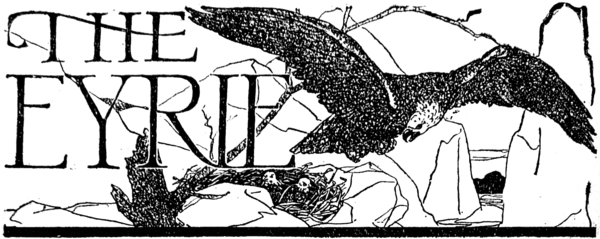
Witchcraft and the Merry Monarch
Most of us have had, at one time or another, a sneaking suspicion that history had dealt harshly with King Charles II of England. But is it possible that Black Magic and the Powers of Darkness, also, gave a raw deal to that pleasant gentleman who "never said a foolish thing, and never did a wise one"?
Read Mr. Wellman's interesting sidelight on his story, The Liers in Wait, and decide for yourself!
Briefly and bluntly, I admit that The Liers in Wait might well have happened just as I have set it down.
We know, from standard history, that Charles II fled forlornly after his defeat at Worcester in 1651, and that even in the first hours of his flight the rumor went up that witchcraft had been used against him. As my story asks rhetorically, where and when else have Scots troops refused to fight? And why should rain have fallen only on the wood where Charles hid, and nowhere else? How about Cromwell's exact seven years of unrestrained temporal power?
Charles II was a secret man. We are not sure of even his religious faith, if he had any. He never made public his own narrative of that wonderful escape in disguise, though some of his helpers and companions wrote fascinatingly about it. We do know that he was alone for a full day in Spring Coppice, and that anything might have happened there. Assuredly he acted in later life like a pleasure-loving but thoughtful man who had known a strange shock in his youth. And in those days England was full of witches—everywhere.
Many scholars, even modern scholars, believe that Cromwell's regime had the support of black magic. The erudite Father Montague Summers opines that "beyond any shadow of doubt, Oliver Cromwell was a Satanist, intimately leagued with the powers of darkness to whom he sold his soul for temporal success." James Grant, in his monumental work on demonology of all nations, quotes Cromwell's lieutenant, Colonel Lindsay, as saying that the commander of the Parliamentarians spoke with the devil in his presence, and made the aforesaid seven-year contract, I could cite others.
Much as I admire Summers and Grant, I take leave to differ with their view of Cromwell. He was fierce and harsh and greedy for dictatorial power—but he would not have parlied even with Satan. More reasonable, I argue, is the thought that among his followers (as everywhere in that time and place) were traffickers with wizards.
The spells and conjurations of my three witches I quote almost exactly from a curious and probably dangerous volume of such things, attributed to Albertus Magnus and annotated here and there in a mordantly knowing longhand. For the style of the narrative I have studied again the Restoration writers—notably Bunyan, Evelyn, Pepys and Wycherly.
Back of it all is sympathy, if not admiration, for Charles II, who was most consistently well-meaning. Probably he was a practical liability to his age, and Cromwell a practical asset; yet how pleasant we find Charles, and how forbidding Old Noll! If this be Jacobitism, make the most of it!
121
